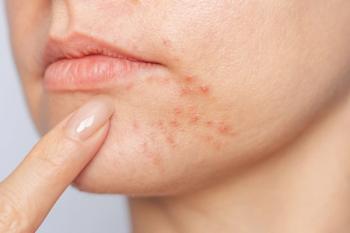
- June 2018 (Vol. 39, No. 06)
- Volume 39
- Issue 6
Patients rate acne scar subcision techniques
Doctors writing in the Journal of Cosmetic Dermatology find blunt cannula subcision (BCS) more effective than Nokor needle subcision (NNS) for acne scarring.
Blunt cannula subcision caused fewer and less severe complications than Nokor needle subcision and both physician and patient stated they were more satisfied with BCS, researchers wrote in the March 9 issue of the journal.
Led by Bita Saghi, M.D., of Shahid Beheshti University of Medical Sciences in Tehran, researchers said that no such comparison has been previously reported.
“Blunt cannula has been proposed as a potentially proper alternative for Nikor needles, and others have implied that cannula may be more efficient in treating acne scars; even laser cannula is employed for treatment of cellulite,” the authors wrote.
This was a small study that included only 34 adult patients (73.5% female) with either mild (29.4%), moderate (55.9%) or severe (14.7%) acne scars.
At baseline rolling acne scars were present on both malar sides of all patients, for which one malar side was treated with NNS and the other with BCS. Tumescent solution was injected as local anesthesia, followed 15 minutes later by subcision and suturing. Afterward, gentamycin ointment was applied as an antibacterial prophylactic agent.
The Results
One month after the procedure with BCS, 55.73% of patients reported being satisfied with the results as compared to 41.47% of patients treated with NNS. At three months, the satisfaction rates were 57.64 percent and 42.05 percent, respectively.
In terms of doctor satisfaction, although only two dermatologists were included in the survey, more were satisfied with the results of BCS treatment at month one and three as compared to the results of treatment with NNS.
Complications for NNS included ecchymosis and nodule formation; however, hyperpigmentation due to the ecchymosis was evident for only one week after NNS treatment. In contrast, the only complication of BCS was edema.
The authors cited some concerns with NNS that had been previously reported in the literature, including the likelihood of mild to moderate efficacy, recurrence of scars in many cases, side effects and inflammatory responses.
Accepted Treatments
Although BCS treatment looks promising, the most common treatments for acne scarring include encompass punch excision, punch elevation, subcision, laser skin resurfacing, elliptical excision, skin graft and tissue augmentation. There is currently not enough evidence to support BCS as an accepted therapeutic option for acne scarring, the authors wrote.
Three other study groups have explored subcision procedures for acne scarring. In one study, an 18-gauge needle was used for subcision for 40 patients leading to a myriad complications that mostly resolved in two weeks.
Another study included only eight patients. They were treated with 18 and 21 gauge cannula for two sessions. Roughly 88 percent of patients showed improvement and all patients were satisfied with the outcomes.
A third study used blunt blade subcision, which worked for 66.7% of patients who were “highly satisfied,” 27.8% were “moderately satisfied” and 5.5% were “not satisfied.” They reported early postoperative complications of ecchymosis (83.3%), swelling (72.2%) and pain or tenderness (61.1%).
References:
Mehdi Gheisari, Behzad Iranmanesh, Bita Saghi. “Blunt Cannula Subcision is More Effective Than Nokor Needle Subcision for Acne Scars Treatment.”
Articles in this issue
over 7 years ago
Melanoma diagnosis by physician or PA not always straightforwardover 7 years ago
Pulsed dye laser fails surgical scarsover 7 years ago
Calming inflammation in common skin conditionsover 7 years ago
The acne supplementover 7 years ago
Cimzia receives positive CHMP opinion for plaque psoriasisover 7 years ago
FDA approves Tafinlar with Mekinist for melanomaover 7 years ago
SPSSCS names Donna Erb new presidentNewsletter
Like what you’re reading? Subscribe to Dermatology Times for weekly updates on therapies, innovations, and real-world practice tips.












